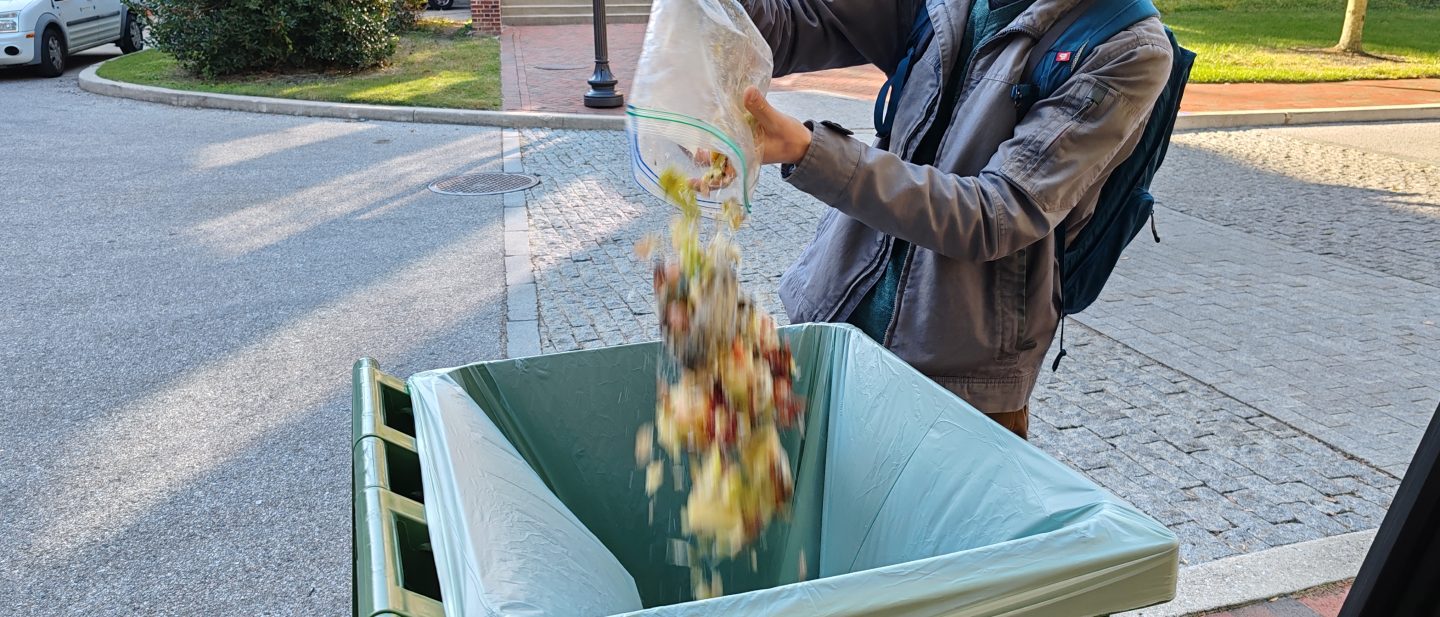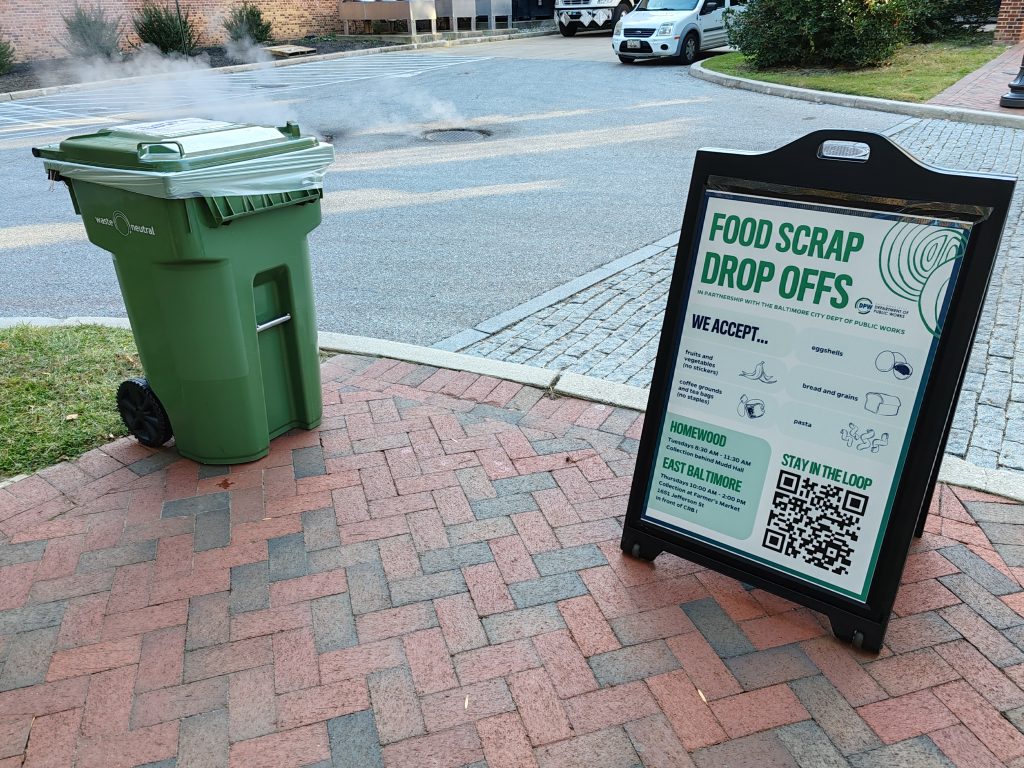
Johns Hopkins University is not only committed to reducing our own environmental footprint through composting, but we strive to support valuable resource diversion across Baltimore City and the region. In 2023, the Office of Climate and Sustainability had the opportunity to do so through a partnership with Baltimore City’s Department of Public Works (DPW). JHU, along with our peer institutions University of Maryland, Baltimore (UMB) and Loyola University, were recipients of a USDA-funded grant to increase food waste diversion through expanding the network of food drop-off sites across the city to reach communities in areas with limited access to composting services.
Since August of 2023, the Homewood and East Baltimore campuses have offered food scrap collection for JHU affiliates and community members to compost items from home. In that time, over 4,900 lbs of waste have been collected and composted from 626 visits, 75% JHU affiliates and 25% local community members. While the USDA grant came to a close this past March, the two sites are continuing thanks to the generous support of the Homewood Recycling Office and the School of Medicine Facilities.

In addition to the impact made at JHU, the grant allowed UMB to pilot a composting program for their faculty, staff, and students, as well as residents of the neighboring Downtown and West Baltimore communities. Results from their program’s two sites yielded over 12,000 lbs of composted material. This positive response has led them to submit a proposal to make the collections permanent and possibly expand their compost operations. The grant allowed Loyola University to offer compost collection at the Govan’s Community Farmers Market, diverting 1,900 lbs of material for composting.
Cara Murray, Program Analyst for DPW and grant partner, shared that “DPW has enjoyed working with JHU, University of Maryland Baltimore, and Loyola to implement and improve food scrap drop off programming. The USDA funds supported food scrap collection and oversight over a two-year period, and DPW is looking forward to seeing the program succeed going forward. Building partnerships between city government and local organizations like JHU can amplify the food waste reduction and diversion messaging DPW hopes to share with a growing audience.”
The continued availability of compost collection for JHU and Baltimore City community members means that valuable organic resources will be recycled back into nutrient rich soil amendments. When used on our campus landscaping and residential gardens across the city, compost helps to curb the use of chemical fertilizers, improve water retention in the soil, cut down on stormwater runoff, and reduce greenhouse gas emissions. JHU hopes that one day residential curbside compost collection will be available for all City residents, but until then the university stands by our pledge to support local composting infrastructure in Baltimore with regional community partners.
We hope you will join us and drop off your food scraps at the convenient Homewood (behind Mudd Hall) or East Baltimore sites (in front of CRBII), available 24/7. As an incentive, the Office of Climate and Sustainability will be at the Johns Hopkins Hospital Farmers Market on May 22nd 29th giving away countertop food scrap collection bins for your home, to the first 18 people who stop by.
Learn what is acceptable for compost here.